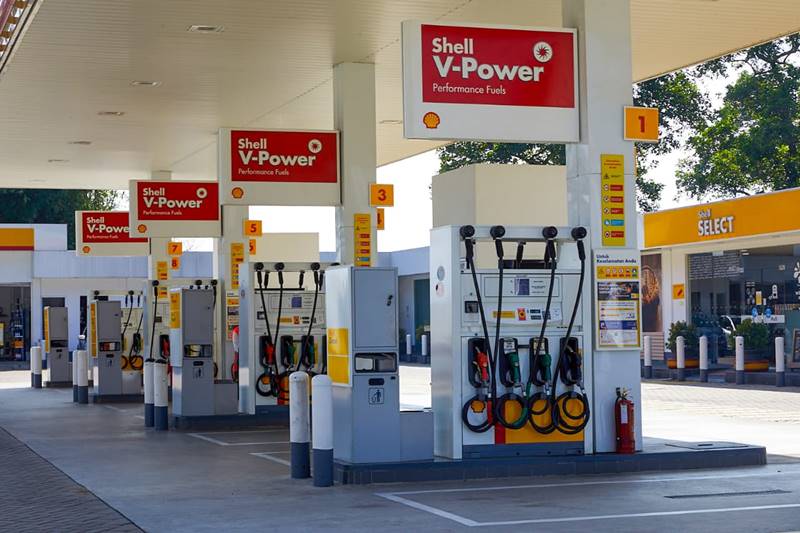

opensourcesupportdesk, Jakarta – Big news is shaking up the fuel industry in Medan this year as Shell announces the closure of all its gas stations in the city. The decision has sent shockwaves through the local community and raised questions about the future of gas stations in one of Indonesia’s key economic hubs. Let’s dive into why Shell is making this move, how it will impact Medan, and what alternatives are on the horizon for drivers in need of fuel.
Reasons behind the closure
Shell’s decision to close all gas stations in Medan this year has sent shockwaves through the local community. The reasons behind this abrupt closure are multi-faceted and complex, involving a combination of financial challenges, shifting market demands, and strategic restructuring efforts. One major factor contributing to Shell’s closure is the increasingly competitive landscape of the fuel industry in Indonesia. With rising operational costs and declining profit margins, maintaining operations in Medan may no longer be sustainable for the company.
Moreover, changes in consumer behavior and preferences have also played a significant role in Shell’s decision. As more people turn to alternative modes of transportation or electric vehicles, traditional gas stations are facing decreasing demand for their services. Additionally, global trends towards renewable energy sources have put pressure on oil companies like Shell to adapt their business models. This shift towards sustainability may have influenced Shell’s choice to consolidate its operations and focus on other markets with higher growth potential.
Impact on the local community and economy
The closure of Shell gas stations in Medan this year will undoubtedly have a significant impact on the local community and economy. These stations have been longstanding fixtures, providing not only fuel but also convenience for residents and businesses alike. With their departure, many will need to find alternative options for their refueling needs.
Local businesses that rely on Shell’s presence may face challenges as they adjust to sourcing fuel from other providers. This shift could potentially lead to increased costs or logistical issues, affecting their bottom line. Additionally, employees who work at these gas stations may find themselves displaced, adding further strain to the local job market.
Furthermore, the closure of Shell gas stations could also influence competition among remaining fuel providers in Medan. As other companies seek to fill the gap left by Shell’s exit, consumers may experience changes in pricing or services offered. The ripple effects of this decision are expected to be felt across various sectors of the local economy in the coming months.
Alternative options for fuel in Medan
As Shell closes its gas stations in Medan, residents are left wondering about alternative options for fuel. One potential solution is turning to other major gas companies that operate in the area. Companies like Pertamina and Total may see an increase in customers as a result of Shell’s departure. Additionally, electric vehicles are becoming more popular worldwide, including in Indonesia. Investing in electric cars or motorcycles could be a long-term solution for reducing reliance on traditional gasoline-powered vehicles.
Furthermore, carpooling and public transportation can help reduce the overall demand for fuel in Medan. Encouraging sustainable practices like these can benefit both the environment and the local community. With Shell’s exit from Medan looming, exploring diverse alternatives for fuel is crucial to ensure a smooth transition and minimize disruptions for residents and businesses alike.
Response from Shell and other gas companies
Shell’s decision to close all gas stations in Medan has sparked various responses from both Shell and other gas companies operating in the area. Shell expressed regret over the closures, citing financial challenges and shifting market dynamics as reasons for their withdrawal from the region. The company emphasized its commitment to supporting affected employees during this transition period.
Other gas companies in Medan have acknowledged the impact of Shell’s exit on the local fuel industry. Some competitors have hinted at potential expansion opportunities following Shell’s departure, while others are exploring ways to fill the gap left by the closure of Shell stations across Medan. Collaborative efforts between remaining gas providers may be necessary to ensure continued access to fuel for residents and businesses in the city. As discussions continue within the industry, it remains to be seen how different gas companies will adapt to these changes and address evolving consumer needs amidst a shifting landscape of fuel supply in Medan.
Possible solutions for affected employees
As Shell prepares to close all its gas stations in Medan by the end of this year, many employees are faced with uncertainty about their future. For those affected, exploring alternative employment opportunities within the fuel industry could be a viable solution. mployees with relevant experience may consider seeking positions at other gas stations or petrol companies in the region. Additionally, acquiring new skills or certifications related to customer service, sales, or management could open up doors to different job prospects.
Another option for affected employees is to diversify their skill set and explore opportunities in related industries such as automotive services or convenience stores that often co-locate with gas stations. Networking within professional circles and attending job fairs can also help connect them with potential employers looking for their expertise. While change can be unsettling, it also presents an opportunity for personal and professional growth. By staying proactive and adaptable during this transition period, affected employees can navigate these changes successfully and carve out a new path for themselves in the evolving job market landscape.
Conclusion: The future of gas stations in Medan
As Shell prepares to close all its gas stations in Medan this year, the local community and economy are left pondering the future of fuel accessibility in the city. The impact on employees and customers is significant, with many seeking alternative options for their refueling needs. The closure of Shell stations opens up opportunities for other gas companies to expand their presence in Medan. While this change may initially disrupt the market, it also provides a chance for innovation and competition that could benefit consumers in the long run.
As we look ahead, it’s clear that the landscape of gas stations in Medan is evolving. Whether through new players entering the market or existing ones adapting to meet changing demands, one thing is certain – access to fuel will remain essential for residents and businesses alike. The closure of Shell stations marks a turning point, but it also signals a new chapter in how Medan meets its energy needs moving forward.





